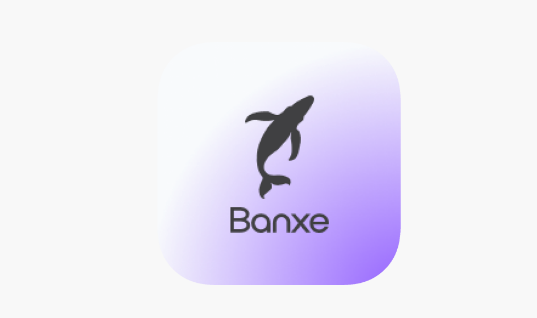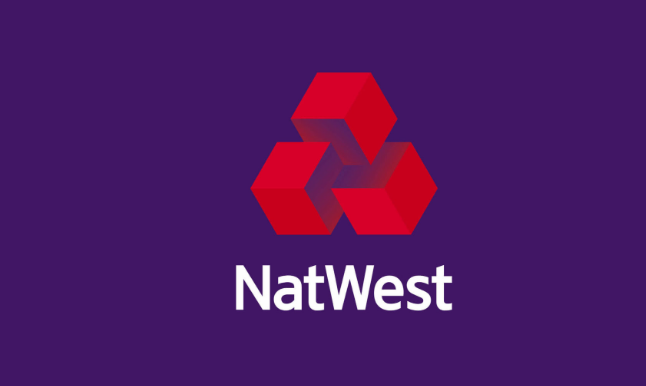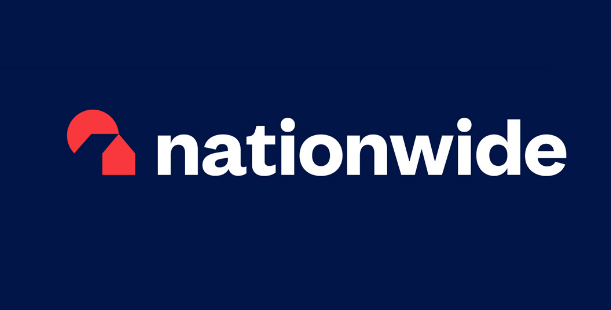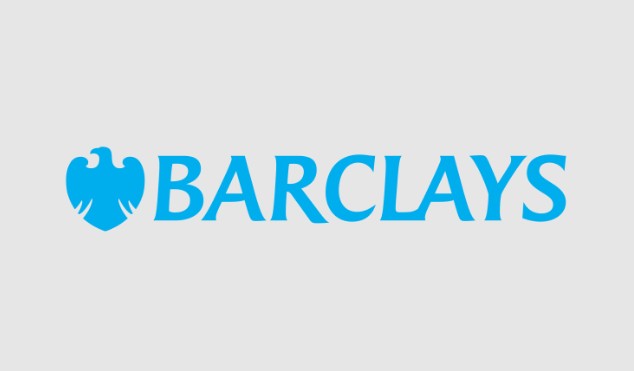
Thanks to cryptocurrencies, the business world has transformed, providing one more opportunity for the asset management and building industry. If a business uses digital currency, it will need to find the right bank to have a business crypto wallet.
This article presents the five best banking providers with the most reliable, strong, unique, and professional cryptocurrency services that meet business needs. The main information about the list of banks is in terms of the features, safety measures, and laws of each bank.
Hence, a potential organization can choose the best crypto bank depending on the organization, as this article provides relevant information to businesses.
Understanding a Business Crypto Wallet

We know business crypto wallet as an online solution that allows companies or individuals to control, save, and conduct financial operations with cryptos, including Bitcoin (BTH), Ethereum (ETH), and other altcoins.
In contrast to existing crypto wallets, a business wallet provides additional features for corporate needs. These include increased security for secure financial transactions, access for multiple users, and accounting system integration.
Key Features
-
Enhanced Security: It ensures maximum security through 2FA and encryption, which protects digital finances from hackers;
-
Multisignature Access: This feature demands sign-in requests to approve the withdrawal, enhancing security;
-
Friendly Interface: The ease of use and simplicity of use simplify the process of management for businesses;
-
Capability of Integration: It can be integrated into other business management systems for proper financial coordination handles;
-
Diverse Cryptos: Offers different cryptocurrencies, allowing business enterprise transactions across multiple platforms;
-
Audit and Tracking: Businesses can track audit entries, exits, and positions, allowing them to perform accounting functions.
Important! Keep in mind that every kind of wallet has benefits and drawbacks. Your unique requirements and situation determine the optimal option.
Difference Between a Traditional and Business Crypto Wallet
The difference between these wallets has become exceptionally prominent. Despite both kinds of wallets being used for storing money, traditional wallets come in handy for keeping physical money, as do ATM cards, and they are visually less sophisticated and recognizable.
In contrast, the main purpose of business crypto wallets is not only limited to storage but also to interact from the trade viewpoint.
|
Feature
|
Traditional Wallet
|
Business Crypto Wallet
|
|
Purpose
|
The purpose of this wallet is to store cash and physical cards.
|
The purpose of this wallet is to manage and transact digital currencies.
|
|
Accessibility
|
You need to have physical access to use this wallet.
|
You can access this wallet with ease using software platforms.
|
|
Security
|
This type of wallet has physical security measures like resistant material wallets.
|
It has advanced digital security measures like 2FA, encryption, and multi-signature capabilities.
|
|
Functionality
|
It is limited to holding cash and cards, and it has no transaction capability.
|
It enables storing, sending, receiving, and sometimes exchanging cryptocurrencies.
|
|
Transaction Tracking
|
Manual tracking through personal memory or physical reports.
|
This wallet has reporting and automated tracking features.
|
|
Integration
|
No direct integration with banking.
|
You can integrate this wallet with business systems like ERP and financial software.
|
|
Currency Support
|
This type of wallet only supports fiat currencies.
|
This type of wallet supports both fiat and crypto.
|
Criteria for Choosing a Bank for Best Business Crypto Wallet
The financial provider you select will have a significant impact on safety, efficiency, and conformity on a business's digital wallet. After having a firm grasp of these factors, you can rest assured that your banking option will suit your Bitcoin transactions. Here are the criteria for choosing a suitable wallet:
|
Criteria
|
Description
|
Why It's Important
|
|
Security Measures
|
This type of wallet uses security protocols, including encryption and 2FA.
|
Having such protocols ensures that assets and transaction data are safe.
|
|
Regulatory Compliance
|
Its adherence to local and international regulations
|
This protects the business from legal repercussions
|
|
Support and UI
|
The wallet is simple and easy to use. Customer support is readily available.
|
This feature ensures smooth banking operations and quick resolution of issues.
|
|
Integration
|
The wallet should easily integrate with business systems.
|
This feature helps to improve and streamline processes.
|
|
Fees
|
Check the transaction, maintenance, and other costs.
|
This affects the cost-efficiency of business crypto transactions.
|
Important! Businesses should assess and compare different banking providers to determine which crypto wallet best aligns with their strategies and requirements.
The Top Banks Offering Small Business Crypto Wallet
Dependable banking solutions that provide security are becoming a crucial factor for small businesses that need to streamline the use of their digital assets. Here are some of the best crypto wallet providers that businesses need to consider:
-

When it comes to cryptocurrency wallet services, Banxe provides a full-featured financial platform for small enterprises. Banxe is unique among financial platforms because it accepts fiat money and over 350 other cryptocurrencies.
Attractive currency exchange rates and dedicated IBANs make this platform ideal for international and local payments through SEPA, FPS/CHAPS, and SWIFT. Transactions are safe because of their advanced security features, which include 3D Secure.
Using Banxe's Pro Wallet function, safely handle your digital assets, and the platform works seamlessly with other business solutions to boost operational efficiency.
Pros:
-
Supports a range of fiat and cryptocurrencies;
-
Real-time currency exchange rates;
-
Strong 3D secure security protocol;
-
Seamless integration with software;
-
Pro Wallet for advanced crypto management.
Cons:
-
It may limit some conventional banking services;
-
Limited in-person services;
-
Requires familiarity with digital and cryptocurrency transactions.
-

One participant in this field of online banking is Revolut. It’s ahead of the curve by extending digital banking's reach with its cryptocurrency capabilities, which are mostly aimed at commercial offers.
In addition to fiat currencies, the user-friendly platform allows small businesses to convert, hold, and spend a variety of cryptocurrencies. Companies looking to digitize their finance operation across fiat and crypto ledgers will find the connection particularly intriguing.
Along with prepaid debit cards, real-time transaction alerts, and international money transfers, Revolut's cryptocurrency is a component of a larger financial ecosystem.
For a company looking to diversify its revenue streams, this presents a significant opportunity to control the entire financial workflow simultaneously.
Pros:
-
Instant access to many currencies;
-
Integrated financial services options and transactions;
-
High-security storage includes cold storage, asset deposits, and 2FA.
Cons:
-
Lesser chances to customize a business account for cryptocurrency transactions;
-
Client support is slow, which is a disadvantage for businesses needing client support quickly.

The intuitive online interface of the UK-based banking provider Monzo has contributed to its meteoric rise in popularity. The bank now offers cryptocurrency services as part of its expanded offerings to small businesses.
A creative user experience and a heavy emphasis on technology were used to make Monzo. Easy online banking has always been Monzo's main priority. The goal of Monzo's foray into commercial crypto services is to make it easier for small enterprises to benefit from digital currency.
So, if your business is looking to keep things simple and eventually get a Bitcoin account, Monzo is a solid option. Even though Monzo is only starting with its bitcoin service, it offers all the tools a user might need to manage their small business's funds with ease.
Accounting and integrated budget tools are particularly useful for small businesses. Due to the need for fewer documents it facilitates the growth of small businesses by allowing them to consolidate their accounts into a single bank service.
Pros:
-
Has a great UI for new entrants;
-
Prioritizes the safety of businesses by using fraud detection features;
-
Offers a great opportunity to integrate accounting and budgeting tools.
Cons:

NatWest, a dependable and trustworthy banking provider, has joined the digital market. This bank is useful for small and medium-sized businesses looking to start or expand their work with digital currencies, especially since the services linked to crypto issues continue to climb.
The target audience should pay close attention to NatWest's assurance of a safe trading environment. Also, to help businesses see the potential of cryptocurrencies, the bank goes above and beyond by offering workshops, consultations, and integration support.
Therefore, NatWest can serve as an excellent starting point for businesses that do not currently have expertise with crypto solutions.
Pros:
-
An established bank with robust security and legal compliance;
-
Has educational resources for businesses new to crypto;
-
It employs dedicated business advisors who provide consultations on integration and crypto use.
Cons:

Nationwide has a robust customer portfolio that is loyal to its services. Additionally, Nationwide applies its customer-centric approach to the crypto market by helping businesses create safe crypto wallets that users can navigate easily.
This service offered by Nationwide is particularly great for small businesses since it combines the trustworthiness of conventional banks with the possibilities of crypto partnerships based on innovation in terms of financial activities.
Indeed, small businesses often avoid trustworthy investors and lack the means to explore the complicated crypto market. That is why the aims and objectives of small businesses are well suited to the Nationwide model. The main selling point of Nationwide is its ability to keep fiat and digital currencies under one roof.
Pros:
-
High trust and safety level, well-established bank;
-
Integration of banking services with crypto transactions;
-
Competitive fees, especially when compared to other banks offering similar crypto-related services.
Cons:

Barclays provides a cryptocurrency wallet for businesses by drawing on its long history of international banking. The possibility in quickly growing areas, including the use of Bitcoin (BTC) in business, was exceptional to ignore, even if traditional banks are notoriously wary of innovative technology.
It allows businesses to explore emerging cryptocurrencies with security and compliance. It is possible thanks to the authentic integration of crypto transactions with standard banking safety measures.
It is the perfect starting point for many companies. It allows us to connect the dots between conventional banking and the digital revolution.
Barclays focuses on providing crypto services and assisting businesses to learn how to use digital currency effectively. Businesses new to digital currencies are more conservative, so their services will appeal to them.
Pros:
-
Solid institutional backing means increased security and strict regulatory compliance;
-
A great mix of digital and traditional currency services;
-
Opportunity to benefit from financial expertise and market information.
Cons:
Conclusion
As businesses find cryptocurrency appealing, choosing a bank to house a company's crypto wallet becomes increasingly significant. This article gives an overview of banks that offer personalized services to give readers an idea of what they can expect in terms of special features, services, and downsides.
Security of the wallet, its usability, customer service, and integration with financial systems should all be high priorities for companies. A company's success or failure in capitalizing on digital currencies hinges on the choice of bank for its crypto wallet.
Consequently, whether you're an individual or a company, you should give this some serious thought and conduct some basic research to help you make a well-informed decision.